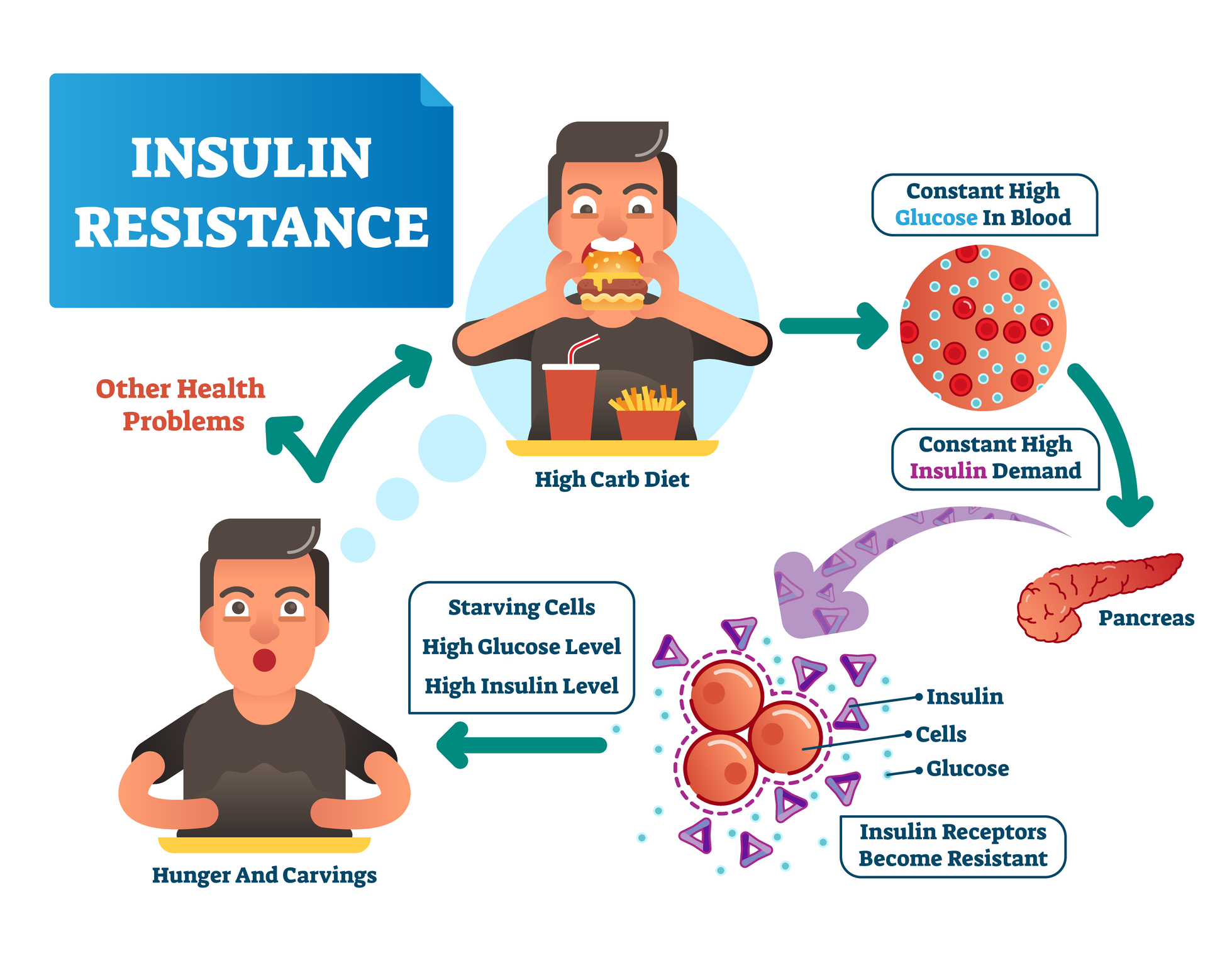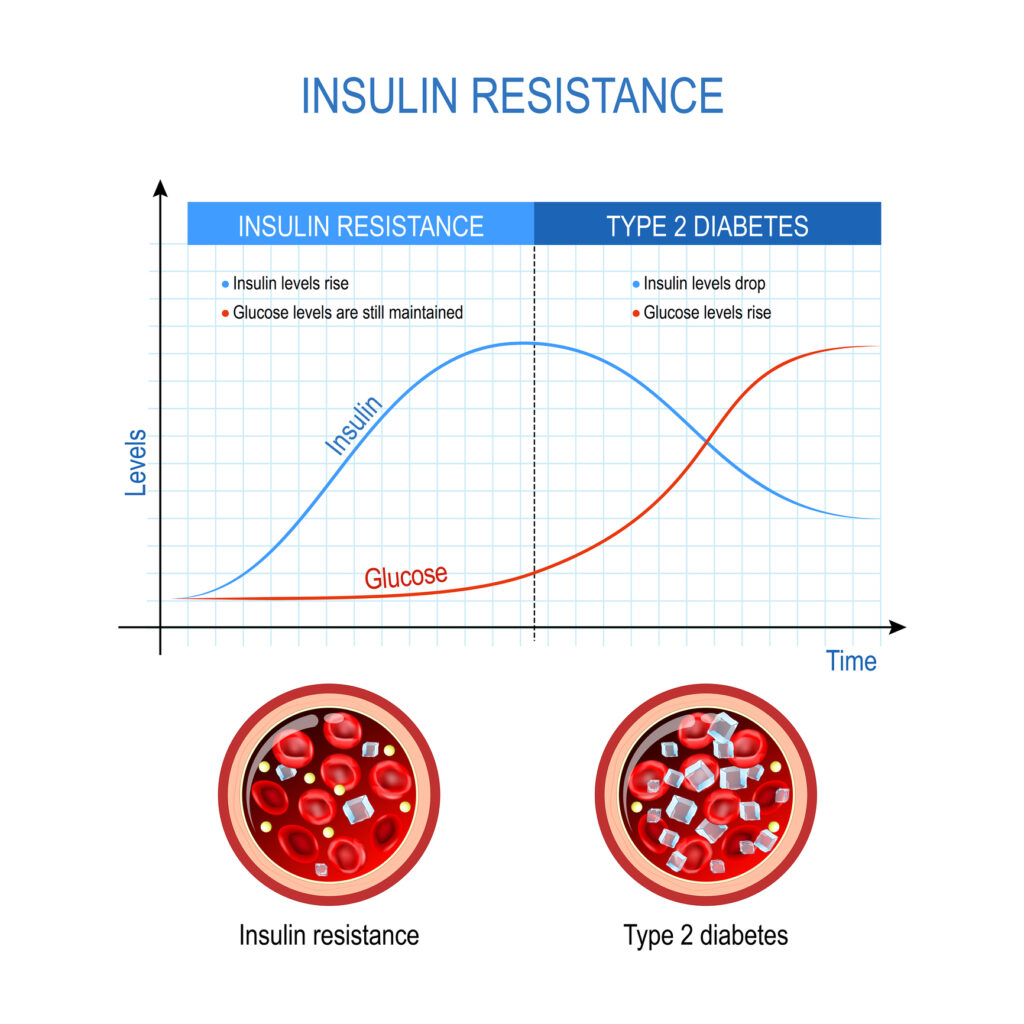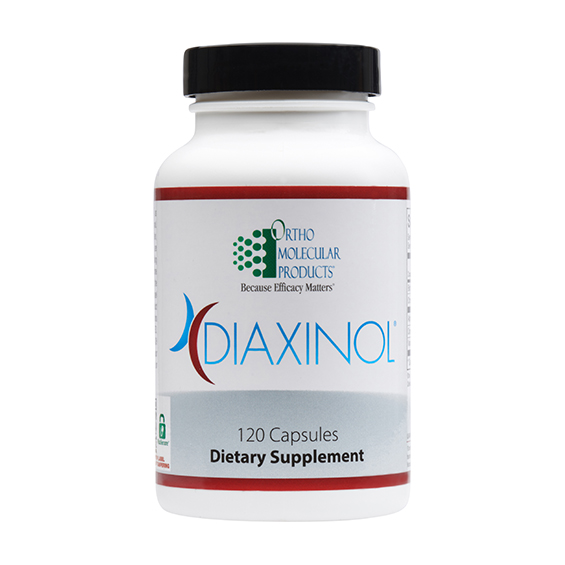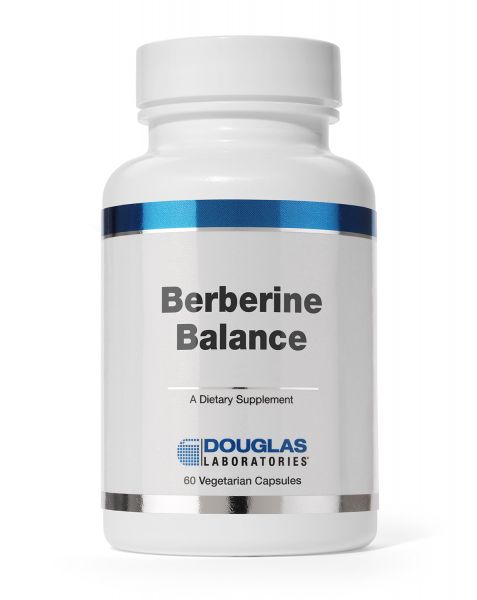Insulin plays a crucial role in controlling your blood sugar. When your cells need energy, insulin allows sugar to enter and be burnt as fuel. Think of it as a key to open your cells and allow sugar to leave your blood. However, this process doesn’t always work. Insulin resistance prevents insulin from working correctly, increasing the risk for developing diabetes. The good news is insulin resistance can be reversible with diet and lifestyle.

What is insulin resistance?
Insulin resistance reduces the sensitivity of the body to insulin, a hormone produced by the pancreas for regulating blood sugar levels. As a result, the blood insulin levels rise. Overtime, your body has to make more and more insulin to try to get the same effect. Eventually it cannot keep up, and this leads to several health issues, including type 2 diabetes, metabolic syndrome, heart disease, and obesity.
Symptoms of Insulin Resistance Include:
- Fatigue after eating
- Excessive hunger
- Increased weight gain
- Dark patches on the skin
- Increased thirst and frequent urination
- Slow wound healing

What causes insulin resistance?
Insulin resistance can be caused by a number of factors, but the biggest factor is being overweight or obese. Excess body fat induces insulin resistance, especially fat in the abdomen. Other contributing factors include genetics, a sedentary lifestyle, a diet high in sugar and unhealthy fats.
How Nutrition & Exercise Can Help

Nutrition plays a crucial role in managing insulin resistance. The following dietary modifications can help improve insulin sensitivity:
- Reduce carbohydrate intake: A diet that is high in refined carbohydrates and sugar can increase insulin resistance. Opt for complex carbohydrates like whole grains, legumes, and fruits to regulate blood sugar levels.
- Increase fiber intake: Fiber slows down digestion and helps regulate blood sugar levels, reducing insulin resistance. Good sources of fiber include fruits, vegetables, legumes, and whole grains.
- Increase healthy fat intake: Unsaturated fats like those found in nuts, seeds, avocados, and olive oil have been shown to improve insulin sensitivity.
- Control portion sizes: Eating large portions can lead to overeating and weight gain, which can increase insulin resistance. Practice mindful eating and control portion sizes to maintain a healthy weight.
- Limit processed foods: Processed foods are often high in sugar, unhealthy fats, and preservatives, which can increase insulin resistance.
How Exercise Can Help
Exercise causes muscle to take up sugar without the need for insulin, so it reduces overall insulin levels. Slowly work up to exercising 30 minutes 5-7 days a week.
Insulin Resistance Supplement Protocol
Some supplements can help support normal blood sugar levels. You can find our full protocol on our Fullscript dispensary (free account required).
Diaxinol® is a natural and synergistic formula for maintaining balanced blood sugar. Diaxinol®’s unique and effective formulation contains five ingredients provided at targeted doses for maximum efficacy: Alpha lipoic acid (ALA) , Cinnulin® (a patented 20:1 aqueous cinnamon extract), and Chromium. *
Berberine Balance supplies high potency berberine combined with alpha lipoic acid and grape seed extract for blood sugar and cardiovascular support. Recent studies indicate that berberine is an effective supplement for helping to maintain cardiometabolic health. Grape seed extract is a well known antioxidant with heart health benefits, and alpha lipoic acid helps to support proper insulin function
Magnesium (glycinate) is a highly bioavailable magnesium chelate, which supports the metabolism and utilization of carbohydrates, amino acids and fats for energy. Magnesium (glycinate) helps activate enzymes for physiological functions including cardiac health.
In addition to supporting bone health, vitamin D plays an important role maintaining cardiovascular health and immune function, and promoting an overall sense of well-being.*
In Conclusion
Insulin Resistance can arise for a number of reasons, but strategies such as diet, exercise, and supplements can help support healthy blood sugar. If you need help or are looking for ways to better your health, please don’t hesitate to reach out!







Wow, this was so insightful! The information you’ve shared is both insightful and actionable but also very relevant for anyone trying to improve their health.
I really appreciate how you kept things simple.
I’m going to reference this article on my platform
about nutrition and wellness – I know my audience will find it as insightful as I
did. Thanks for the great work